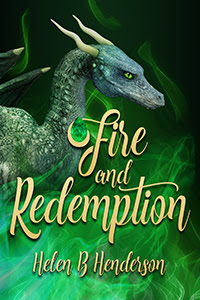Welcome to week 14. The topic is a sensitive one--Bad Reviews. Or more specifically "What I Learned From My Worst Review." To have a worst review means you have to have bad reviews, something no author ever wants to have.
In the case of reviews, I'm thinking of a one-star. The star wasn't earned because of bad writing or poor production but solely as a means to denigrate another author. In this case the consensus of those contacted one-star and negative comments were a means to promote a friend who was in direct competition. One thing I've learned after decades as a writer is that trolls don't just exist in fairy tales.
The second worst review was not on a published piece but a draft--and the comments were from a member of a critique group. The vicious tirade started in the second paragraph and ended at the bottom of the first page with "Rewrite everything" and ended with "I can't read anymore."
Now as to what was learned?
Look at the person behind the words.
- Are they a reader or a writer?
- In your genre or another?
- If a writer, are they experienced or someone full of themselves as they await their first release? Think the old addage of "Hire a teenager while they still know it all."
- Any obvious prejudices? Has the reviewer trashed other books in your genre?
- Other examples of prejudice is that women can't be leaders. Or, there can't be any romantic element in a fantasy.
There is one train of thought to avoid reading reviews and another is to read every one. If you read them and the criticism makes sense, consider incorporating it into either that work or future ones if it will enhance the piece.
I'll end the post with the note I include with my critiques.
Don't worry about the amount of blue or number of comments. It often takes longer to ask a question or explain a thought than the few words you might decide to delete or add. I realize the suggestions I made might be in my voice. They are just food for thought. Use or toss as you will. There is no need to defend or justify anything. Ultimately the piece is your vision.
Thanks for stopping by. It's a hop so be sure to visit the other authors in the challenge. ~till next time, Helen
correcting gremlins that sneaked into the list
Dee S. Knight(Nomad)


















I hadn't thought of any criticisms by an editor! I had one who really didn't 'get' my story, and she tried to get me to change several things. We butted heads several times, and compromised on some, but I was never happy with the final result. When that publisher closed, I was very happy I'd saved my original file, and it was repubbed in its original form, with better editing.
ReplyDeleteHaving worked as editor, publisher, author, and journalist I've been on all sides of the desk. Editors may hold your future in their hands but they are still people, with their own ideas. Sometimes right, sometimes wrong. I still disagree with the editor who said a woman can't be the lead character, can't handle a sword, or be a leader. Guess he never watched Xena. Thanks for stopping by.
DeleteIt seems were on the same page with nasty critiques! That's a nice summary you include with yours.
ReplyDeleteFor quite a few years I worked with unpublished (or thin-skinned with their first contract) authors. The note was to help them look at everyone's comments with a critical eye, not just get defensive and reject it all.
DeleteI mentioned a reviewer's prejudice but not the thought to check by association such as FB or GR groups. For example, if a FB group states fantasy cannot have any romance, and books with a male and female lead are banned, the odds are a review from a member of the group would reflect the no romance, no relationship bias.
ReplyDeleteGreat points on what you/ we can learn. I love the note you include with your critiques.
ReplyDelete